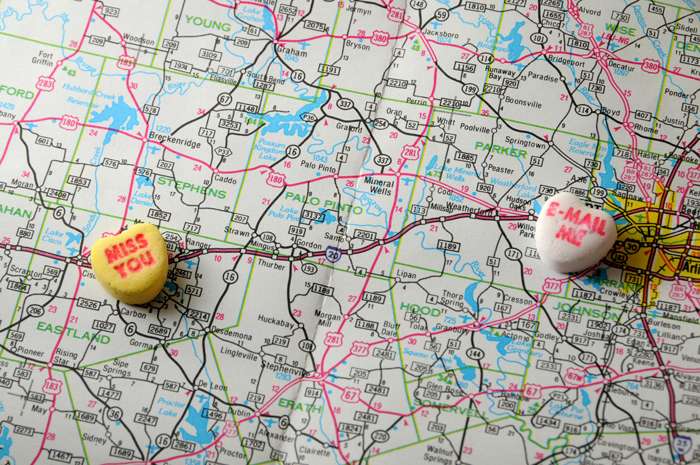Oh, the worrying
/Despite all happy-go-lucky appearances, when the worry genes were handed out in whatever queues are involved in such things, two of these kids must have received double doses. Or gone back for more.
Now, I'm no stranger to a good case of the worries; I am surely and admittedly a worrier at heart. I think it must be in the sap running through the branches of our family tree. My grandmother was a champion hand wringer/worrier who seemed to be convinced that her vigilant worrying kept bad things at bay. As a girl I watched my brother refuse to get out of the car for school some mornings, so incapacitating was his anxiety at times. ep, I know where my kids' ruminating came from and you know what? Now I worry about their worrying! I know firsthand that it can drain the joy from life. Or--here--Corrie ten Boom said it much better: "Worry does not empty tomorrow of its sorrow, it empties today of its strength." What's a parent to do?
A recent study of 1200 elder adults revealed a commonly held, surprising regret. When they looked back over their lives, their biggest regret was the time they wasted worrying. What did they suggest doing instead? Their good advice for reducing worries was threefold: focus on the short term, prepare, and adopt an attitude of acceptance.
In her book Bird by Bird, Anne Lamott's advice to writers is relevant to worriers as well. "Thirty years ago my older brother, who was ten years old at the time, was trying to get a report on birds written that he'd had three months to write. It was due the next day. We were out at our family cabin in Bolinas, and he was at the kitchen table close to tears, surrounded by binder paper and pencils and unopened books on birds, immobilized by the hugeness of the task ahead. Then my father sat down beside him, put his arm around my brother's shoulder, and said, 'Bird by bird, buddy. Just take it bird by bird." Likewise, focusing on the short term and breaking down the big worries into smaller tasks has been one method that's worked for us at our house.
A few years ago Sam came into our bedroom and unloaded a late-night litany of concerns about not measuring up during an especially stressful time at school. We talked it through--he had done the studying and work--but he had such high standards for himself it was hard to convince him to loosen his grip on those worries. In a stroke of inspired desperation, we drew up an official, parent-issued License to Fail on the back of a scrap of paper. He never flashed it or cashed it in but I think it served some purpose in dialing down the pressure he felt. It stayed pinned to his headboard until we moved.
Dr. Edward Hallowell, in his book Worry, relates ten helpful tips for addressing anxiety that I have adapted here (in the parentheses) for helping kids and teens:
- ever worry alone. (Make lots of opportunities to talk with your worried teen and even get their pledge that they'll never worry alone.)
- Get the facts. (Help your child discern between what's actually true and what they're just predicting or fearing. As the saying goes, "just because you think it doesn't mean it's true.")
- All worry isn't bad. (Help your child understand the difference between toxic worry, which is paralyzing and defeating, and good worry, which spurs planning and problem solving.)
- Let it go. (Help your child understand and use Hallowell's mantra: "I'll fix what I can and then I'll put the rest out of my mind.")
- Take care of yourself. (Make sure your child is getting enough exercise, sleep, and a well-balanced diet. All three can greatly affect anxiety.)
- Add structure or routine where you need it. (Help your child make lists and introduce routines that help reduce the worry. Sometimes repeated worry can mean kids are over-scheduled or overwhelmed so help them simplify until they reach a better balance.)
- Reality test your worry. (See number one; lots of talking helps put things in perspective.)
- Use humor. (You don't want to make fun of worries but adding some humor to any situation brings more perspective and lightens things up.)
- Look for what is good in life. (Bring out the positives and encourage your child to find them, too. Avoid too much tv and internet.)
- Develop connectedness. (Hallowell calls this Vitamin C, as in "vitamin connect." Worries love isolation; they multiply there. Encourage connection with family, other adults, peers, and friends and provide lots of opportunities to be part of a larger community and purpose.)
ne thing I've noticed: Not everyone--even within the same family--registers their worries in the same way. Or at all. As I said, we have two worriers but the other of my three children seems to float above it all in a sunshiney land of it'll-all-work-out. Lauren's a laid-back, come-what-may-and-love-it kind of gal who, truth be told, could probably stand to have a little more worry in her life. Once during her hectic junior year she said to me, pensively and almost in awe: "Mom, I think I have a strange feeling. I don't know what it is...but I think I might be...um...worried." Oh, if only we could redistribute those go-with-the-flow and worry levels among us! Then maybe we'd all be at worry equilibrium once and for all.
I haven't tried this personally but this Outsmart Your Worry tool kit for kids and teens looks pretty interesting and looks like it takes a skill- and strategy-building approach for handling stress and anxiety.
I also liked this visualization exercise for putting worries into perspective (via Cup of Jo, also the source of the illustration below:)



















